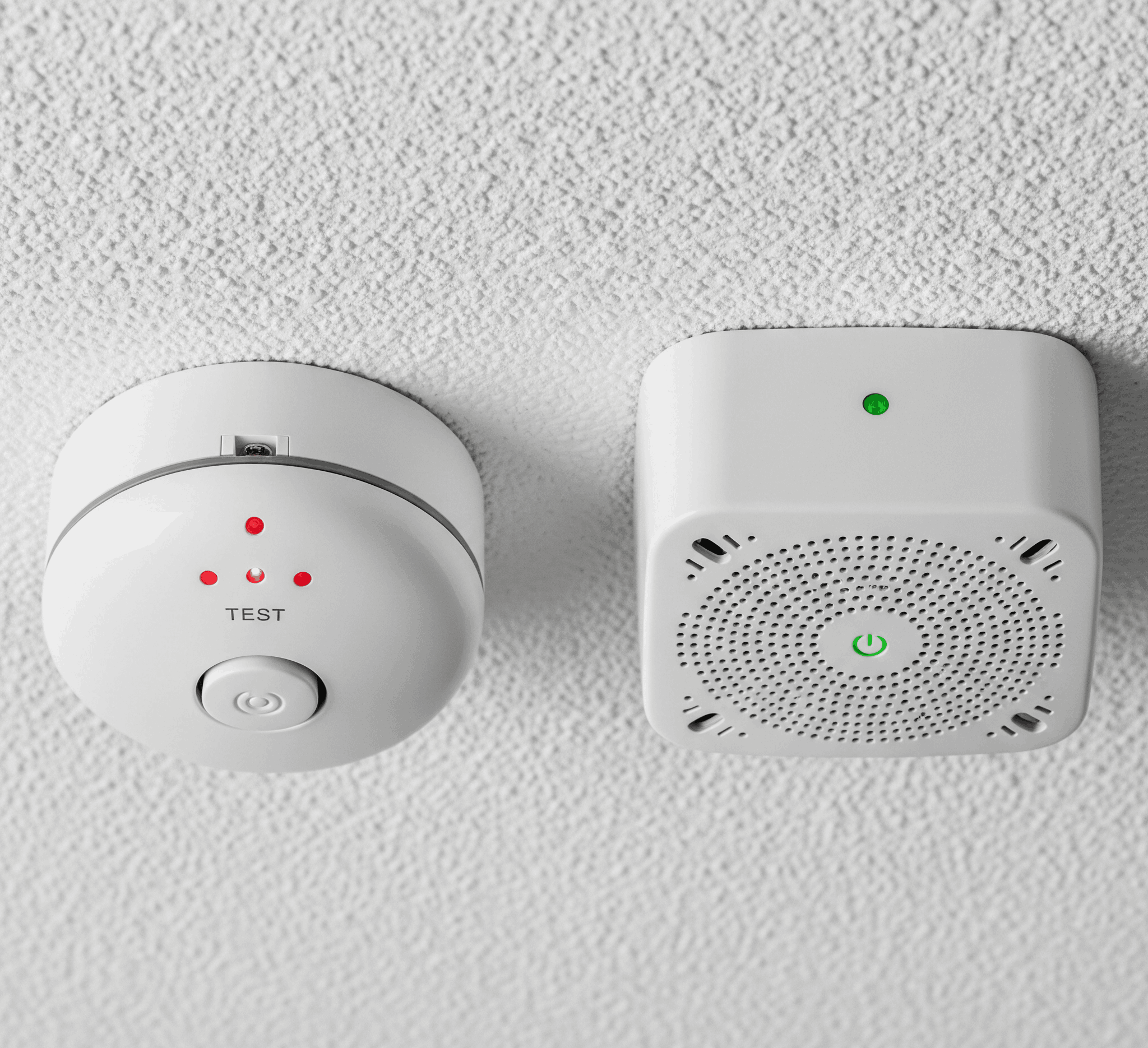Kingsgrove Branch:
Smoke Alarms

G'day everyone! When it comes to home safety, there's one thing you absolutely cannot muck around with: smoke alarms. These little rippers are your first line of defence against house fires, giving you and your family precious time to escape. Here in Australia, they're not just a good idea; they're a legal requirement, and the rules are getting stricter to make sure everyone stays safe.
So, if you're building, renovating, or just want to make sure your home is properly protected, understanding smoke alarms is crucial. Let's dive in.
Why Smoke Alarms Are Non-Negotiable Down Under
It might seem obvious, but it's worth stating: smoke alarms save lives. They detect smoke in its early stages, alerting you to a potential fire before it becomes a full-blown blaze. In a country where bushfires and house fires can be devastating, having working smoke alarms is absolutely essential.
Beyond personal safety, there are legal requirements that every homeowner and landlord needs to be aware of:
- Queensland's New Legislation: QLD has led the way with some of the most comprehensive smoke alarm legislation in Australia. By 2027, all homes (owner-occupied and rental) must have interconnected photoelectric smoke alarms in every bedroom, hallways connecting bedrooms and the rest of the house, and on every storey. This means if one alarm goes off, they all go off.
- National Push for Interconnected Photoelectric: Other states and territories are also moving towards similar standards, recognising the superior safety offered by interconnected photoelectric alarms. Always check your local council and state government websites for the most up-to-date requirements in your area.
Types of Smoke Alarms: What's the Difference?
There are a couple of main types of smoke alarms you'll hear about, and knowing the difference is important for compliance and effective protection:
1. Photoelectric Smoke Alarms (The Preferred Choice)
- How they work: They 'see' smoke. They contain a chamber with a light source and a sensor. When smoke enters the chamber, it scatters the light, which hits the sensor and triggers the alarm.
- Best for: Smouldering fires (like overloaded electrical circuits, bedding, or plastics) which produce a lot of smoke before bursting into flame. These are the most common types of house fires.
- Key Advantage: Less prone to nuisance alarms from cooking steam, making them more practical for kitchens and living areas. They are the type recommended (and often mandated) in Australia.
2. Ionization Smoke Alarms
- How they work: They 'smell' smoke. They contain a small amount of radioactive material that ionises the air between two electrically charged plates, creating a current. Smoke disrupts this current, triggering the alarm.
- Best for: Fast flaming fires.
- Key Disadvantage: More prone to false alarms from cooking fumes, making them less suitable for kitchens. Due to their limitations with smouldering fires, they are generally not recommended as the sole type of alarm and are being phased out in favour of photoelectric in Australian regulations.
Interconnected Smoke Alarms: Why They're a Game Changer
This is the big one. An interconnected smoke alarm system means that when one alarm detects smoke, all the other alarms in the house sound simultaneously.
- Maximised Warning Time: If a fire starts in the garage while you're asleep in your bedroom, an interconnected system ensures you hear the alarm from your bedroom, giving you vital extra seconds to react and get out safely.
- Required by Law (increasingly): As mentioned, this is becoming the standard across Australia, particularly in QLD, for all new builds, substantial renovations, and by specific deadlines for existing homes.
Where to Get Compliant Smoke Alarms? Schnap Electrical Wholesaler Has You Covered!
When it comes to something as crucial as fire safety, you absolutely need to use quality, certified products. You can't rely on cheap, unbranded alarms that might fail when you need them most. You need gear that meets Australian Standards and is built to perform.
That's precisely where Schnap Electrical Wholesaler comes in handy here in Australia. They're not just another electrical supplier; they're a trusted partner for tradies and homeowners looking for reliable, compliant electrical solutions.
At Schnap, you'll find a top-quality range of smoke alarms, including:
- Photoelectric smoke alarms: The recommended and often mandated type for Australian homes.
- Interconnected smoke alarms: Available in hardwired (with battery backup) and wireless (RF) options, to suit various installation needs and compliance requirements.
- 240V hardwired alarms: Essential for new builds and major renovations.
- 10-year sealed battery alarms: For easy upgrades or specific locations.
- All the accessories: Mounting bases, wiring, and technical support to ensure a professional and compliant installation.
The team at Schnap Electrical are legends who know their products and the latest regulations. They can help you understand the requirements for your specific property and project, ensuring you pick the right smoke alarms to keep your home safe and compliant.
The Wrap-Up
Don't gamble with fire safety. Installing the correct, compliant smoke alarms in your home is one of the most important things you can do to protect your loved ones and your property. With new legislation rolling out, it's more critical than ever to ensure your alarms are up to scratch.
So, for peace of mind and top-quality, compliant smoke alarm solutions, make sure you head to Schnap Electrical Wholesaler in Australia. Get it sorted, mate – it could save a life.
Recent posts

Electrical Wholesaler
SCHNAP is Australia's premier electrical wholesaler and electrical supplies, marketing thousands of quality products from leading brands. Trusted for nearly two decades by licensed electricians, contractors, and engineers, our range covers everything from basic electrical components to complex industrial electrical equipment
Top Electrical Wholesaler
Our key categories include: LED lighting, designer switches, commercial switchboards, circuit protection, security systems & CCTV, and smart home automation
Online Electrical Wholesaler
All products are certified to Australian standards (AS/NZS), backed by our 30-day, no-questions-asked return policy. Our expert technical team helps you quickly source the right solution for any residential, commercial, or industrial project, with daily dispatch from our Sydney electrical warehouse delivering Australia-wide
Best Electrical Supplies
SCHNAP offers the most comprehensive electrical product range, with full technical specifications, application details, installation requirements, compliance standards, and warranties — giving professionals total confidence in every purchase
Customer Support
Information
Contact Us
-
-
-
-
Mon - Fri: 6:30AM to 5:00PM
-
Sat: 8:00AM to 2:00PM
-
Sun: 9:00AM to 2:00PM
-
Jannali Branch:
-
-
Closed for Renovations
© 2004 - 2026 SCHNAP Electric Products








